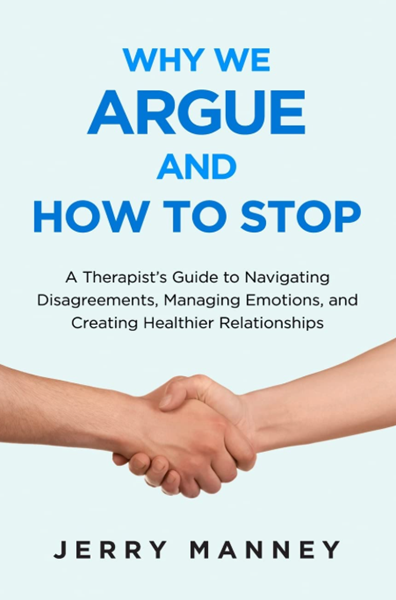Book Review: Why we argue and how to stop

Sometimes I’m sent books to review and I just don’t get around to it fast enough. This book was one of those. Why we argue and how to stop: A Therapist’s Guide to Navigating Disagreements, Managing Emotions, and Creating Healthier Relationships by Jerry Manney .
I found this book quite interesting.
Early on, Jerry notes that journaling is important because memory is unreliable. Jerry said I learned a long time ago that one of the key characteristics of a knowledgeable and successful person is not how much they can remember, but whether they have a method or system for accessing important and relevant information when they need it. I’m certainly learning that more as I get older.
I can’t say I agreed with using Mother Theresa as an example of someone you wouldn’t think would argue but did. After reading Christopher Hitchen’s Book about her The Missionary Position I was pretty horrified.
Why we argue and how to stop
I liked the discussion on reasons for arguing in the first place. Jerry notes that identifying the reasons why you argue is a good starting point. A self-help questionaire that covers this is provided.
There is a good discussion on how to stop heated arguments. I’ve previously written about how I do that when I’m umpiring sport.
Making arguments and discussions rational
I liked the discussion on focussing on a single issue at a time, and rules for discussions that achieve this outcome. And liked the concept of venting with someone as opposed to venting at someone. Avoiding any name-calling is crucial when doing this.
Jerry also notes about the importance of being able to apologize. Many people just can’t do this. Sadly, the current leader of the free world is one of them.
Getting the outcomes you want
The concept of picking your priorities also seems important to me. Far too many people seem to like arguing for the sake of arguing, and they often don’t have a clear outcome they are aiming for. The discussion on how to move forward when you seem stuck is also good.
In chapter 5, there is a good discussion on getting concerns really heard, and a seven point set of guidelines for positive communication. This is critical in getting your concerns really heard and considered.
Learning to let go and dealing with children and teens
In a later chapter, there’s a good discussion on letting go of things like anger, resentment, and excessive guilt. It covers the importance of avoiding too much projection into the future, and ideas around how to avoid taking things personally.
Chapter 9 was interesting. It covered dealing with children and teens, and concepts like finding teachable moments. It is different to dealing with adults, particularly if you have to deal with tantrums, etc.
Getting help
The book finishes out with a lengthy discussion about how to find help. You can’t always solve things by yourself, and it’s important, if you need help, that you don’t wait to long to find it.
Summary
Overall, I really enjoyed this book. It’s not long but I think it’s exactly the right length. I just wish I’d gotten to it sooner. Great work Jerry !
8 out of 10
Note: I received a free review copy of this book from the publisher, TCK Publishing .
2025-07-13
